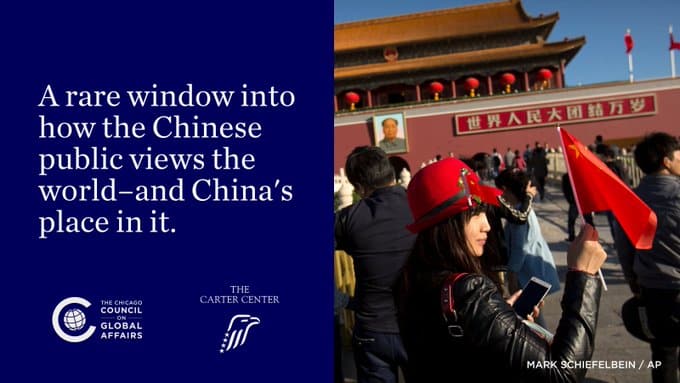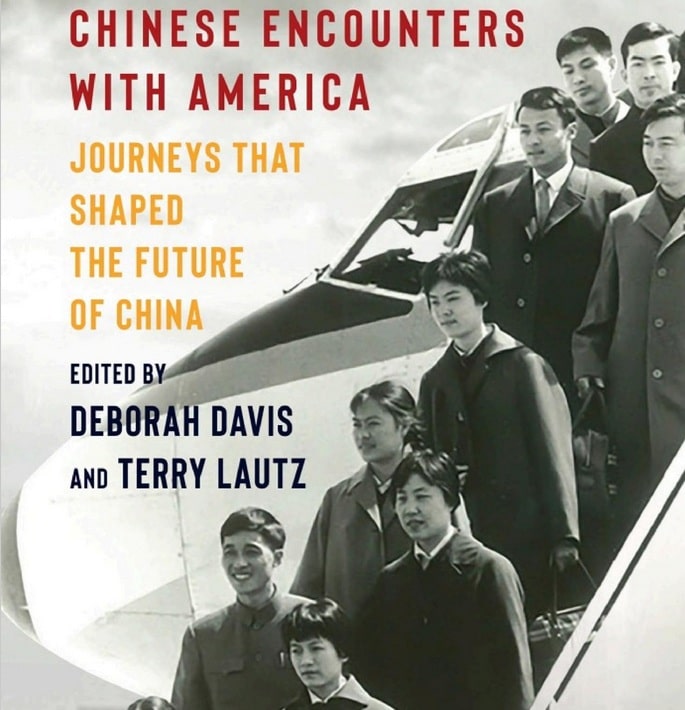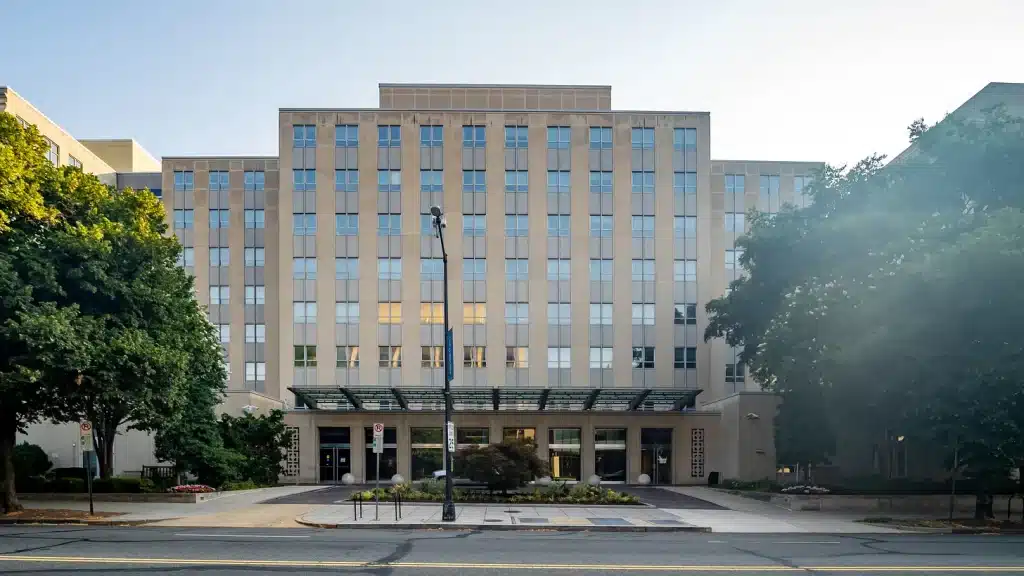Ambassador Julia Bloch: The Last Pillar in US-China Relations
Ambassador Julia Chang Bloch was the first US ambassador of Asian descent. As the Founding President of the US-China Education Trust, she promotes US-China relations through education and exchange between Chinese and American students, scholars, and policy experts. In this interview, Ambassador Bloch discusses the great challenges and opportunities found in the field of educational exchange, along with her advice on righting the course of US-China relations and reflections on her own upbringing.
Zhang Juan: In a recent speech that you delivered to the American Chamber of Commerce in China, you said that you regard educational and cultural exchange as the last pillar in US-China relations and that this last pillar is “nearing the cracking point.” Could you elaborate on the full picture of the current state of educational exchange between the two countries?
Julia Bloch: Let me begin by saying that there are, as you know, three key pillars in US foreign policy: political and military, economic and trade, and the third, what I call the last pillar, would be people-to-people educational and cultural exchange.
Traditionally, the third or last pillar has been insulated from political and economic disputes between governments. Educational and cultural relations have been seen as a cornerstone of mutual understanding, and an important bedrock for policies dedicated to the peaceful settlement of differences. So, it’s related but also separate from politics and economics.
Throughout the ups and downs in US-China relations, both countries have shared a sense that the benefits brought by hundreds of thousands of students flowing across the Pacific were simply too great to jeopardize, and so there was insulation. Chinese students, in fact all international students, have been welcome in the United States.
The Trump White House, however, considered banning all Chinese nationals from studying in the US as part of a national security strategy to curtail Chinese intellectual property theft and espionage; it’s part of the trade war. Now, this is a radical departure from US foreign policy on international education. Even during the height of the Cold War, the United States did not ban international students from the Soviet Union or Eastern Europe. While the idea was dropped, it indicates the simple reality that educational exchange now is so embedded in national security concerns that we have to rethink how we approach it.
Zhang Juan: In that speech, you urged the Chamber to support educational exchange as a way to stabilize the relationship. How do you make the connection that protecting and strengthening educational exchange is in the interest of the business world?
Julia Bloch: The numbers speak for themselves; as you know, education is big business. We have over 360,000 Chinese students enrolled in US universities and they bring with them an estimated $15 billion annually in living expenses and related jobs. If you’re part of the business world you absolutely cannot ignore something of that scale, and the Chamber understands that. I might personally choose to emphasize the importance of educational exchange as a pillar supporting the US-China relationship but there’s a very strong case that it’s good for business too.
Zhang Juan: If the number of Chinese students who come to the United States for school keeps declining, what would be the impact to the US?
Julia Bloch: Not only would there be a significant economic impact in terms of the money involved as we just mentioned, but there are potential losses that are impossible to measure which may be even more important. Educational and cultural exchange creates personal relationships which bolster US-China ties, even in the worst of times. When governments are fighting each other, when top-level communication has stalled, something or someone has to keep the dialogue flowing. In my experience, I see education and exchange filling that vacuum.
Zhang Juan: Some Americans emphasize the nature of competitiveness in US-China relations and argue that the US should be careful of training Chinese students. What would you say to these people?
Julia Bloch: America did not become great by being averse to competition. The competitive spirit drives America. What are our anti-trust laws for but to encourage competition? Competition can boost excellence, inspiring men and women to put out their best. Just look how crazy Americans are about sports. You cannot win by avoiding competition.
America also does not have a monopoly on education and training. The UK, Canada and Australia, to name a few countries, are great competitors. The current atmosphere where Chinese students feel increasingly unwelcome in America has created a decline in the growth in Chinese students coming to the US, to the benefit of countries only too happy to take up the slack.
There’s also, I think, a flip side to your question, which is that American competitiveness may very well depend on maintaining our inflow of Chinese students. The United States has the world’s leading higher education system today partly due to the talent we attract from not only China, but also from the rest of the world. So, to answer your question in short, should the United States be careful of training Chinese students? I think we would be shortsighted not to train them.
Zhang Juan: Are you confident that educational exchange can salvage the US-China relations, at least to some extent? To achieve this goal, what would be your advice on this topic to the US government and the Chinese government?
Julia Bloch: Well I believe, and have said for a long time, that the US-China relationship is the most important bilateral relationship in the world today. I think the world has no future if the United States and China cannot find the means to coexist.
But there is no turning back the clock; the relationship has evolved, and attitudes have changed. Certainly, in the US, there will not be a return to the engagement policy that sustained US-China relations since Nixon. This country is polarized, but there is bipartisan consensus that China has not lived up to its promises. The Chinese, at the same time, have hardened their views that the US is out to contain their rise.
What we can do though is to try to stabilize relations and prevent them from further sliding into the abyss, and work to rebuild trust. It’s a long-term project, a gradual process, and it’s dependent on building personal relationships between Chinese and Americans today. And this is where education and exchange are important. Both exchange and interaction are great tools to clear up misunderstandings and lend some measure of grounding to release or reduce animosity and tensions. And that’s why I call it the last pillar supporting US-China relations today. We need a moderating undercurrent that can hold fast when everything else fails.
I would also emphasize that governments cannot do it all. Of course, I encourage policymakers to take note. I don’t think they recognize sufficiently the immense economic and human significance of student exchanges between the two countries. At its root though, people-to-people exchange is not really led by governments; it’s led by civil society.
The reason this last pillar has held out so long and has been so insulated is that it’s not directed by decisions solely made in Washington and Beijing. It’s directed by thousands of engaged academics, students, NGOs and everyday citizens. That is why when government-to-government relations fracture, people-to-people relations endure.
Zhang Juan: You had a very successful career in both the US government and the private sector. What made you decide to turn to China as the next chapter of your career?
Julia Bloch: I was born in China, and I come from a family where my father was the first Chinese graduate from Harvard Law School. He used that education to make critical reforms in China, ultimately regaining the country’s tariff autonomy. So, China has been a part of me, and yet in all my professional life I was not able to work on China because the United States and China did not have diplomatic relations until Nixon visited in 1971.
I felt that when I retired, and US-China relations had been restored, that it was time for me to do something – to make a contribution. I recognized that as a Chinese American, I could serve as a bridge between the two countries, and that is what I try to do with the US-China Education Trust (USCET). I believe that as Chinese Americans, we have a better understanding of both cultures. Because of the ups and downs in US-China relations, the talents of Chinese Americans are needed; it is important to the relationship. That’s why I created USCET in the sunset years of my career – to give back to a country that has been good to me and my family.
Zhang Juan: You founded the US-China Education Trust in 1998, with a mission to promote US-China relations through education and exchange for the next generation of leaders. Looking back, which program makes you especially proud? What is the most daunting challenge that you face when working with USCET?
Julia Bloch: More than any specific project, I am most proud of USCET’s resilience and power. Over the past twenty years we’ve seen dramatic ups and downs in US-China relations. We’re in the midst of one today. Through all of that, USCET has been able to sustain our progress in China.
We have an incredibly strong network of partners stretching from academia and beyond; the bonds of trust we’ve built have, I think, been important. I’m truly proud of USCET’s ability to weather storms – whether that means navigating tighter foreign NGO laws in China, or just maintaining a great network of partnerships at a time when there is so much pressure to disengage. This really touches on both halves of your question. It’s been a daunting challenge, and I’m encouraged with USCET’s resilience in facing it.
Zhang Juan: Throughout the years that you’ve worked with Chinese college students, have you noticed any significant change in those young students in terms of personality and knowledge?
Julia Bloch: I think Chinese students today are so much more self-confident, and I think they are also much prouder of China – of course China has developed a great deal since when I started USCET in the late 90s. They’re right to be proud, but I’m concerned that this pride might turn into nationalism. So, to your question, Chinese students are much better prepared to face the challenges of the world. I have to say, and I’ve said it before, my best students have been the undergrad students from Peking University, no question about that. They are continually growing, that’s change.
Zhang Juan: What would be your messages to those students who have plans to study in the US or those who are already in the US?
Julia Bloch: There are 360,000 Chinese students in the United States and my message to them would be that I hope they make the most of their time in the US, and that doesn’t mean just going to class. It means giving your best shot at building friendships with students from all over the world and taking in cultural experiences you can only find here in the United States, whether that’s a trip to a museum or visiting a national park, joining a local student organization or serving as a volunteer in some service or charity. What matters is that you find ways to explore your passion, to fulfill your potential. America, I think, has something to offer everyone and I would hope that Chinese students in America have the chance to find that potential, that something that will fulfill their lives.
But I also want to add something more personal. I am dedicated to education and exchange because it’s in the family. My father, as I mentioned, went to Harvard, but I didn’t mention that he went to Harvard on a Boxer Indemnity Scholarship. He was in the second group to leave Tsinghua for America, both to get a BA and to go to Law School for an LLM (1911-1917). That generation, and subsequent generations of Boxer Indemnity scholars and their families and descendants are spread around the world – I know some of them who now live in the United States. The Scholarship – probably the most successful educational exchange program between the US and China – has sustained friendship and good will throughout the years. That is the power and value of education and cultural exchange.








